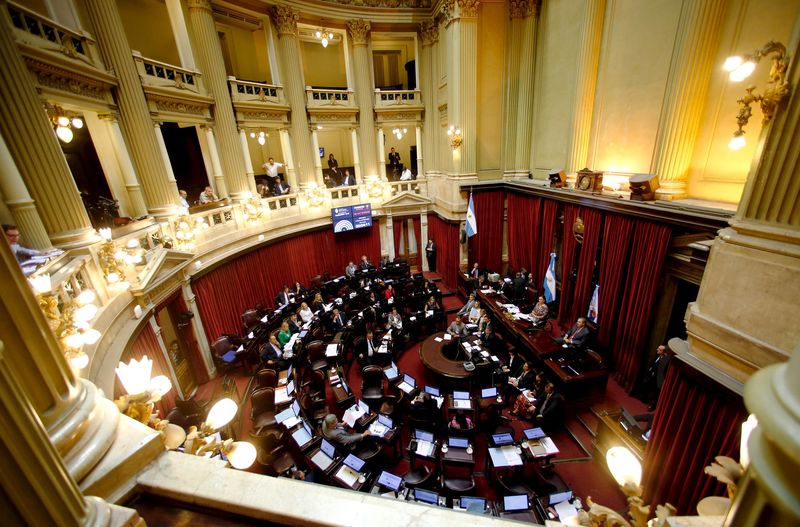(Bloomberg) -- Argentina will send a bill to Congress on Tuesday outlining a plan to address the debt crisis and make payments “sustainable,” Economy Minister Martin Guzman said.
South America’s second-largest economy isn’t able to pay its debt under current conditions and will look to either alter maturity dates, interest rates or outstanding capital amounts, Guzman said. Exact details of the proposal will have to wait, he said, though the bill will cover foreign law bonds as well.
“We have the willingness to pay, but the country needs to regenerate its capacity to pay,” Guzman told reporters in Buenos Aires. “We are taking firm steps to achieve that, but we don’t want to make promises that we cannot keep.”
The bill is a first step in Argentina’s efforts to restructure billions of dollars in bonds and loans with private creditors and the International Monetary Fund. Guzman and President Alberto Fernandez have have yet to unveil details of their strategy to renegotiate the debt, although Fernandez recently said he wants talks to wrap up by March 31 because debt payments balloon after that date.
Speaking at the World Economic Forum in Davos, economist Joseph Stiglitz said investors should brace for “significant haircuts” in Argentine debt. The Nobel laureate was Guzman’s mentor at Columbia University.
No Bailout
The government won’t offer a bailout to the Province of Buenos Aires which has $250 million in debt due on Jan. 26, Guzman said, asked creditors to show good faith by agreeing to a delay in order to give time for broad negotiations. The province asked bondholders to answer by Jan. 22 whether they agree to postpone the capital payment until May 1. At least 75% of bondholders must agree.
“We are maintaining our position that it doesn’t serve anyone’s interest to bail out the province. But the nation and the province are not in a position to pay the maturities,” Guzman said.
Argentina’s century bond due 2117 is trading at 47 cents on the dollar, while Province of Buenos Aires’ bonds due 2021 are trading at 57.3 cents on the dollar.
(Updates with quotes from economy minister and details throughout.)
